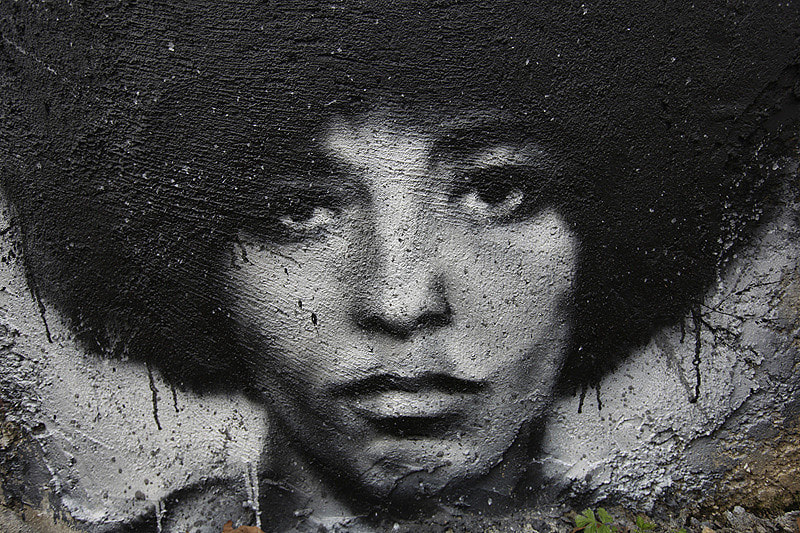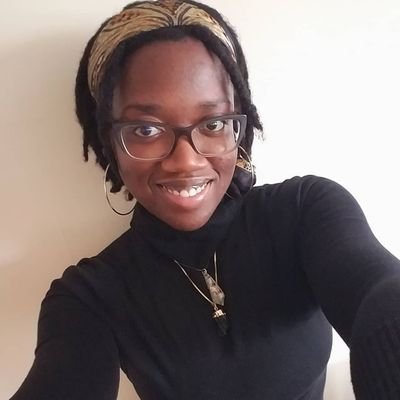|
"If I didn't define myself for myself, I would be crunched into other people's fantasies for me and eaten alive". - Audre Lorde Before I came out as bisexual a couple years ago, I agonized over the thought of telling the world. How would people react? What would they think about me? What would they say? I was married to a man who I'd been with since I was a teenager, so why say anything? I would be lying if I said it wasn't hard to fight the temptation to simply stay quiet. After all, why should I let the world in on something that was so intensely private to me? Why should it be anyone else's business? My reasons for coming out are plenty, with representation being high on that list. Overall, I felt it was important to stand up and be counted so that others like me would feel safer doing the same. Yes, I am a woman and Black and bisexual. Yes, I exist, in all my complication, I exist. The thing that pushed me to finally come out, the thing that pushed me to spill my guts to my mother over lunch, the thing that made me write a Facebook status to confess to the rest of the world was that ceaseless, nagging feeling deep in my gut. You know that feeling. That agonizing feeling of needing desperately to exist as your most honest self, in spite of the fact that it may come with dire consequences. It took me a while to realize it, but so much of my anxiety issues came from the parts of my self that I felt I had to hide. Of being someone who I knew would never be fully accepted by a lot of people. After a while, the anxiety becomes too much to bear. I came to the conclusion that if I was going to continue living on this Earth, I had to do so as my authentic self, not the fragmented faces that I put on to please everyone else. I wanted to be myself, my whole self, and I damn sure didn't want my image to be shaped by anyone else but me. I started this blog to leave a record. Because when I'm gone, I don't want to be anyone's sensational story or their salacious piece of gossip. If you're going to hear anything about me, you're going to hear it from me first. It's a difficult stance to take, but it's liberating as hell. I'm seizing control of the most important narrative that I'll ever write - my own life. It was so hard at first, but as time goes by, I'm reminded again and again of how important it is to openly and loudly define myself, as well as the dangers of leaving that job up to anyone else. See, the problem is that people mostly tend to see you through the lenses of their own lives - their past experiences, their beliefs, their values, their personal points of reference. It's human nature, the fact that we struggle to see and accept people for who they truly are. We project images onto people to make them who we want them to be because confronting who they really are, their true humanness, well that's just too difficult. That might force us to confront ourselves. When Dick Gregory (RIP) passed, I noticed something quite interesting. He was a prolific man with wide influence, so when the social media posts started popping up and people were listing his accomplishments, there was admittedly much to say. However, I noticed that the only people who seemed to mention his vegan activism were other vegans. First of all, I would have to come back and haunt somebody if I spent 50 years of my life dedicating myself to something and then people ignore it once I'm gone. Not only was he vegan but he spoke often about the detrimental effects of a meat, dairy and junk food-laden diet on Black health. You simply cannot talk about racism without addressing that elephant in the room. "[S]entient beings … endure pain and torture as they are transformed into food for profit, food that generates disease in humans whose poverty compels them to rely on McDonald’s and KFC for nourishment" - Angela Davis Or similarly, for all I'd learned growing up about Angela Davis's brilliant civil rights activism, I wasn't aware of her animal rights activism until I myself became vegan. It also took way too long to learn that she identifies as lesbian. For Angela Davis and for myself, animal rights, civil rights and human rights are inextricably linked, yet there are many people who choose to speak only about her views on race. It can be quite disappointing to come across people who are supremely knowledgeable about the systemic nature of racial injustice and yet are casually speciesist and dismissive about animal cruelty. Just as it's disappointing to hear White animal activists speak as if racism is a bygone institution that no longer has a debilitating effect on Black lives. Just as it's hurtful to hear biphobic remarks from straight (or gay!) people who don't realize that you being a woman married to a man doesn't make you heterosexual. When you exist at these intersections you see that there are battles being fought on so many fronts and yet we're holding each other back in so many ways - simply because we refuse to see past ourselves. We refuse to extend empathy past the people - or animals - whose lives we can identify with. There are Black people who will never accept my bisexuality or my stance on animal rights or both. There are vegans who think that it's stupid for me to care about the connection between diet and racial injustice when animal injustice is, in their opinion, so much worse. There are women who can relate to my gender but like to pretend that they don't see my skin color. What frustrates me the most is that in all of these movements, the inability to see past these subtle differences in identity hinders the necessary work that needs to be done on all fronts to stem horrific violence and pain. There's a larger picture, a larger purpose that connects all the dots together. There's a lot of talk about intersectionality, some of it misguided and a lot of it quite frustrating, but that doesn't change the fact that intersectional identities matter. In its original context (please watch the video I include at the end), intersectionality confronts the places - the identities - where we're most at threat to be discriminated against. People who exist at intersectional identities are intimately aware of how terribly we can treat each other (and how institutions can treat us) simply because of who we are. These intersections matter because they are the fragile seams holding this entire thing that we call life together. They can either serve to push us further towards a more accepting and more loving world or they can unravel and tear the fabric of our entire existence apart. It matters that Dick Gregory was a Black vegan. It matters that Angela Davis is a Black lesbian civil rights and animal rights activist. It matters that Richard Pryor was both bisexual and a Black man. It matters that I am a bisexual, Black vegan woman of immigrant descent. It all matters because if we can see the greater picture, it has the potential to show us, for once, that our unique and varied existences are the common thread that binds us all. It serves none of us to constantly be pushing people into tiny, suffocating boxes so that they'll fit the acceptable, uncomplicated image that we project onto them. Accepting the parts of people that make us uncomfortable allows us to address the places where we feel discomfort within ourselves. It is there that you'll find that whether we like it or not, we're all connected in this shared existence. The things that we learn from and about each other are the things that will allow us, collectively, to grow and progress. But first, we have to be able to see ourselves, and each other, for the varied, complicated, yet whole human beings that we are.
2 Comments
2/9/2018 07:23:44 pm
Thank you so much for this article. So many people overlook the intersections and are dismissive when they are pointed out. We can not move this world forward positively if we are unable to see it truly. Thank you for shining a light.
Reply
10/9/2019 05:32:50 pm
We all have our sick days, and that is okay. I am not really fond of sick days myself, but that does not matter. We all have times when our bodies just break down, and that is not entirely a bad thing. Sometimes we just get sick because we tend to overwork ourselves. I am not saying that we need to have sick days more often, rather, this just shows how important it is to rest your body every now and then.
Reply
Leave a Reply. |
AuthorMy name is Nivea, but you can call me Niv. I'm an independent Plant-Based Nutrition & Fitness Coach hailing from the Bronx, NY. Archives
August 2021
Categories
All
|



 RSS Feed
RSS Feed